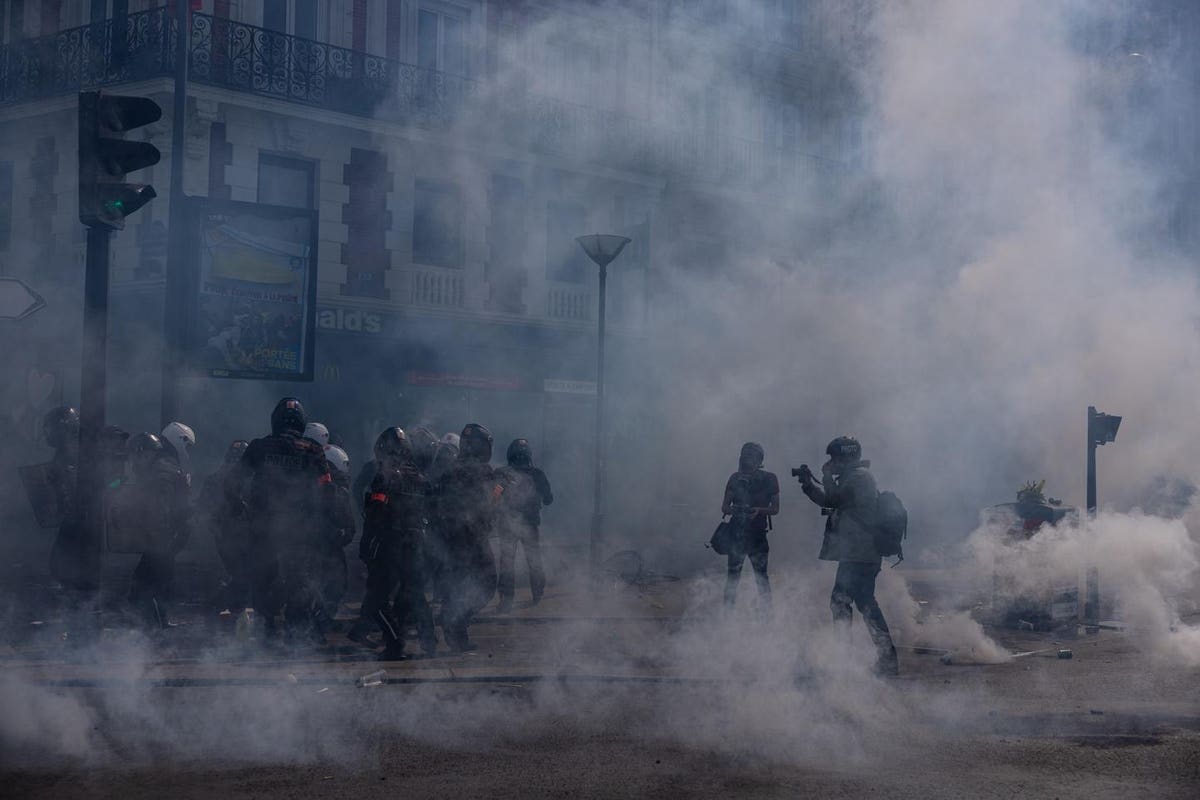In 1940 PG Wodehouse was (as he might be) spending the summer in Le Touquet, when he found himself surrounded by German troops and interned. Naively, he agreed to be interviewed by a Nazi propaganda team about his internment, and the subsequent diffusion of this led some in England to denounce Wodehouse as a traitor. He was stoutly backed by the likes of George Orwell (who wrote an essay ‘In defence of PG Wodehouse), but Wodehouse’s denigrators left him disenchanted by England and he spent much of the rest of his life in the US.
There should have been little doubt as to where Wodehouse stood on fascism. His 1938 book ‘The Code of the Woosters’ is famous for his comic undermining of the character Spode, a black shorted fascist, most likely modelled on Oswald Mosley.
Great Dictator
There are a few other examples of the deployment of comedy to bring fascists to earth, the best of which is Charlie Chaplin’s ‘Great Dictator’, which I strongly recommend. Then, there is the recent Putin/Lukashenko production of ‘Wagner’, which has (by their own admission) confused the best spies in the West, and drained the credibility of Russia’s dictator.
Unfortunately, that is not the end of fascists, electoral systems around the world are spewing them out. Take a few examples. While the main outcome of last week’s Greek general election in Greece was the majority that New Democracy has garnered, 12% of the seats in parliament are held by far-right parties including the badly disguised neo-nazi Golden Dawn party.
In the forthcoming Spanish election, the far-right Vox party may be crucial to the formation of a government and in German the ugly AfD is on the rise. I distinguish these groups from ‘right wing’ parties by the fact that they shamelessly cultivate links to fascists.
Rise of the Right
In this context we have to ask what is prompting the significant rise in support for the far-right, how ill it will shape national and international politics, and in the context of Wodehouse, we should not be naïve in the face of this new trend.
In Europe, the first wave of far right political support is generally understood to have come in reaction to the global financial crisis, and a group of German researchers have detailed this. Now it appears to be a reaction to immigration, inflation, identity politics and in some cases a sense of overbearing government. Many of the far right parties in Europe are generally mute on the issue of economic policy and most, while lauding family values, appear to want to make their countries unfriendly to families.
There are few if any far right parties who have entered government and left with their country improved, and in this respect the rise of the right is a concern. In recent years, their track record is Brexit and the ransacking of American democracy.
In the greater scheme of things, the rise of the right is part of the battle against liberal democracy and a marker of this is that in some countries – gay rights and women are coming under attack by the far-right.
In the near term, the political implication of the rise of the far right is that right wing and centrist parties will be tempted to move further towards the right – and this debate is accelerating in France this weekend.
Farage
Centre-right parties should however bear in mind that an important lesson from Brexit and indeed the career of Donald Trump is that the rise of the far right is often supported by their co-option by the right (i.e. the Tories enabled Nigel Farage and then became a bastion for the likes of Suella Braverman). In that respect the outcome of the forthcoming Spanish election will be interesting (in so far as the PP are willing to go into power with Vox.
Whilst the far right have typically copied the Spode approach when it comes to political theatre, a new element is that they are increasingly linked across countries. Steve Bannon has worked with Marion Marechal on a ‘school for the far-right’ and Giorgia Meloni and Mike Pompeo are close. Operationally, many far right parties use the same rhetoric, ideas, social media tactics and often have the same backers. At a far murkier level there are ties between the far right in Hungary and Greece and the underworld, and in many countries, these parties have tendrils to Russia.
In the end, the far-right usually defeats itself, the question is whether the damage they inflict on society and the democratic process is too much, and if so how to curb them. Preventing far right parties entering the democratic process would itself be undemocratic, but they (together with mainstream politicians – I am thinking of Boris) should be subject to stricter campaign finance laws, oversight of their use of social media and full disclosure of their links to foreign states.
In a week where Jair Bolsonaro has been banned from politics for eight years, voters and parties of the centre need to react to the rise of the far right and adapt to it in the knowledge that as a movement it has created rather than solved problems.
Read the full article here





